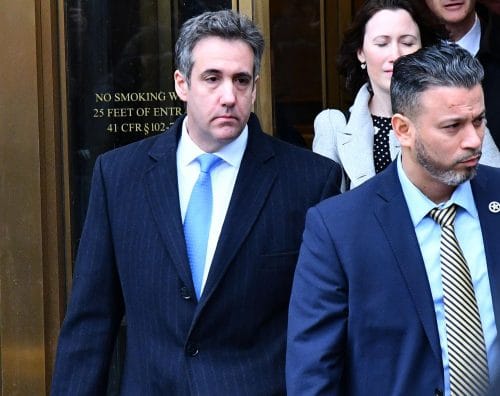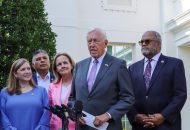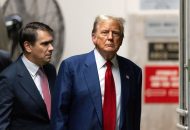What’s Truly Terrifying About Trump’s Private Transactions
COMMENTARY

Donald Trump has described the payments his bagman, Michael Cohen, made to two women during the 2016 campaign so they wouldn’t discuss their alleged affairs with him as “a simple private transaction.”
Last week, when ABC’s George Stephanopoulos asked Cohen if Trump knew the payments were wrong and were made to help his election, Cohen replied, “Of course. … He was very concerned about how this would affect the election.”
But even if Trump intended that the payments aid his presidential bid, it doesn’t necessarily follow that he knew they were wrong.
Trump might have reasoned that a deal is a deal: The women got hundreds of thousands of dollars in return for agreeing not to talk about his affairs with them. So where’s the harm?
After two years of Trump, we may have overlooked the essence of his insanity: His brain sees only private interests transacting. It doesn’t comprehend the public interest.
Private transactions can’t be wrong or immoral because, by definition, they require that every party to them be satisfied. Otherwise there wouldn’t be a deal.
Viewed this way, everything else falls into place.
For example, absent a public interest, there can’t be conflicts of interest.
So when lobbyists representing the Saudi government paid for an estimated 500 nights at Trump’s Washington, D.C., hotel within a month of his election, and Saudi Crown Prince Mohammed bin Salman rented so many rooms at the Trump International Hotel in Manhattan that its revenues rose in 2018 after years of decline, Trump saw it as half of a private transaction.
The other half: Trump would continually go to bat for Saudi Arabia and the crown prince, even after the Senate passed a resolution blaming the prince for the murder of journalist Jamal Khashoggi.
“Saudi Arabia, I get along with all of them. They buy apartments from me. They spend $40 million, $50 million,” Trump told a crowd at an Alabama rally in August 2015. “Am I supposed to dislike them? I like them very much.”
Ethics shmethics. Without a public interest, no deals can be ethical violations. All are just private transactions.
So someone donated $1 million to Trump’s inaugural committee and subsequently received a $5 billion loan from the Energy Department. What’s the problem? Both parties got what they wanted. (Federal prosecutors are now reportedly investigating this.)
Trump aide and former Fox News executive Bill Shine continues to rake in millions each year from Fox News, and Fox News continues to give Trump the positive coverage he wants. Why worry? It’s a good deal for both sides.
This private transactional worldview also helps explain Trump’s odd foreign policy.
According to Trump, North Korea’s Kim Jong Un writes him such “beautiful letters,” that “we fell in love.”
Trump doesn’t care that Kim continues to develop nuclear missiles. Trump gets bragging rights as the first American president to have a good private relationship with the North Korean leader.
Trump and Russian President Vladimir Putin have a “beautiful relationship,” presumably opening the way to all sorts of private transactions.
In July 2016, after emails from the Democratic National Committee were leaked to the public, Trump declared “Putin likes me” and thinks “I’m a genius.” Trump then publicly called on Russia to find emails Hillary Clinton had deleted from the private account she used when she was secretary of state.
That same day, Russians made their first effort to break into the servers used by her personal office, according to an indictment from the special counsel’s office charging 12 Russians with election hacking.
So what? Trump asks.
Even as evidence mounts that Trump aides were in frequent contact with Russian agents during this time, Trump insists he wasn’t involved in any collusion with Putin.
Collusion means joining together in violation of the public interest. If Trump’s brain comprehends only private interests, even a transaction in which Putin offered explicit help winning the election in return for Trump weakening NATO and giving Russia unfettered license in Ukraine wouldn’t be collusive.
When private deals are everything, the law is irrelevant. This also seems to fit with Trump’s worldview.
If he genuinely believes that the hush money he had Cohen pay was a “simple private transaction,” Trump must not think the nation’s campaign finance laws apply to him. But if they don’t, why would laws and constitutional provisions barring collusion with foreign powers apply to him?
As we enter the third year of his presidency, Trump’s utter blindness to the public interest is a terrifying possibility. At least a scoundrel knows when he is doing bad things. A megalomaniac who only sees the art of the deal, doesn’t.
—
Robert Reich’s latest book is “The Common Good,” and his newest documentary is “Saving Capitalism.”
—
© 2018 By Robert Reich; Distributed by Tribune Content Agency, LLC
























